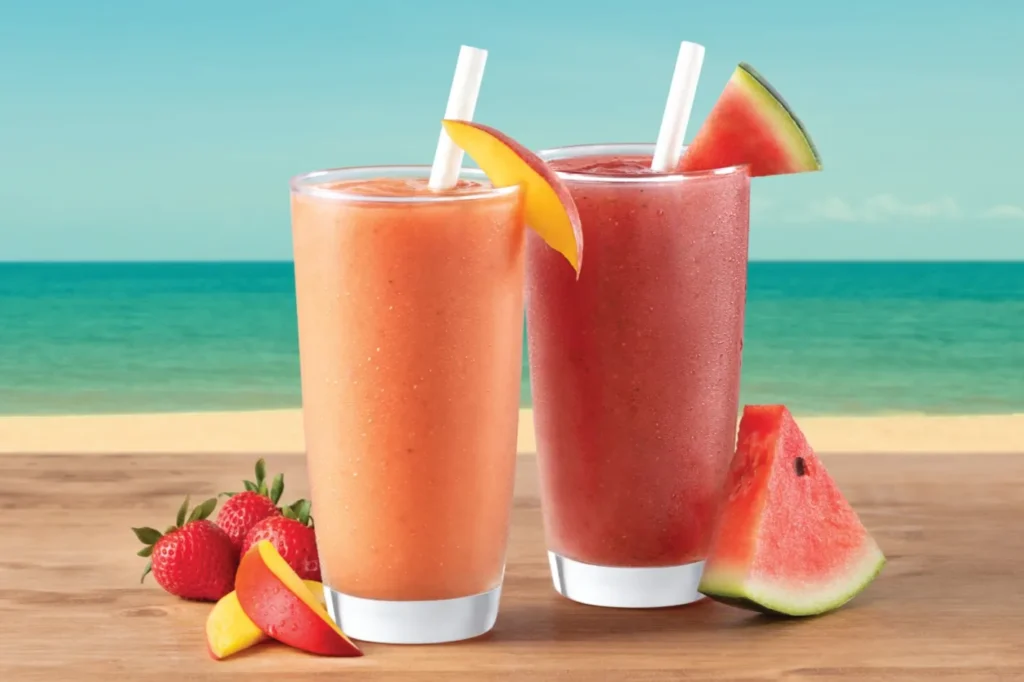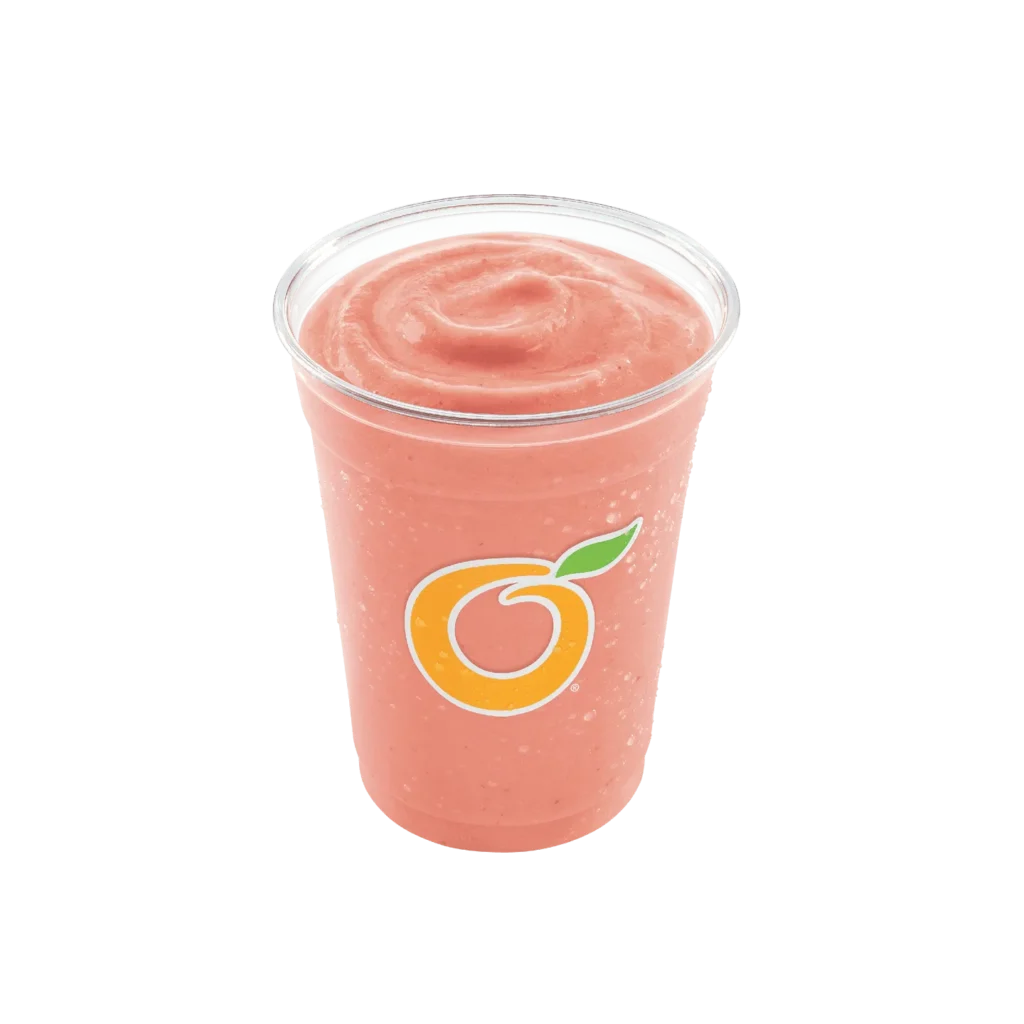With the aid of our in-depth nutrition guide, discover the advantages of and also the making of Nutrition Tropical Smoothie and learn how to make wise decisions for a healthy way of living.

Beyond being a delicious drink, Nutrition Tropical Smoothie has other uses. They have a significant nutritional punch as well.
That’s because they include a variety of vital vitamins and minerals, and just one regular mango can provide about 45% of your daily requirement for vitamin C. To help you get into the summertime spirit, even if it’s a few months early, let’s examine all the different components and advantages that lie beneath the surface of your tropical smoothie.
Nutritional Values of Smoothies
Tropical smoothies are a great source of vital nutrients because they contain a variety of fruits. Highlights of some important vitamins and minerals in each drink are as follows:
Vital Vitamins
Mangoes, pineapples, and bananas are examples of fruits that are rich in essential vitamins.
- Vitamin C: essential for maintaining general health and fending off infections. A normal mango may provide about 45 percent of your daily required consumption of vitamin C, which will help to maintain a strong immune system. Adding pineapples to the diet increases this even more by providing more vitamin C.
- Vitamin A: is necessary for healthy skin, eyes, and immune system performance. Vitamin A, which promotes good vision and strengthens the immune system generally, is also found in mangos.
These fruits work together to provide a wide range of vital vitamins that are important for your health.
Beneficial Minerals
Tropical smoothies contain a variety of important minerals in addition to vitamins.
- Potassium: is essential for both muscle and heart health. Bananas and pineapples are excellent sources of potassium that can add a substantial amount to your daily consumption.
- Magnesium: essential for blood sugar control, bone health, and the proper operation of muscles and nerves. Due to their high magnesium content, bananas are a great complement to tropical smoothies.
Examining the Content of Sugar and Fat
You have to be mindful of the sources of sugar when sipping on a tropical smoothie. Although fruit naturally contains sugar, some varieties may contain added sugars from syrups and sweeteners. This greatly increases the amount of sugar in a smoothie and over time may lead to an excessive intake of calories.
- It is well known that consuming too much sugar can have negative health effects, including weight gain and a higher chance of contracting diseases like type 2 diabetes and heart disease. By paying attention to the additional sugars in your tropical smoothie, you may better control how much sugar you consume. This minimizes needless additives that may cause health issues while enabling you to experience the sweetness of fruits as they are.
- Furthermore, the risks are substantially the same if we concentrate on fats. Naturally occurring fats in foods like avocado and coconut contribute to your tropical smoothies’ higher fat level. Yes, these fats are healthier and have been shown to offer certain advantages, but you should know how much of them you consume each day.
Ingredient Overview of Nutrition Tropical Smoothie
Gaining knowledge about every ingredient in your tropical smoothie will enable you to recognize its health advantages. So let’s examine in more detail a few essential components frequently seen in tropical smoothies:
Mangos: A sweet and juicy fruit, mangoes give your smoothie a distinctly tropical taste. They also include a lot of nutritional fiber, little fat, and vitamins A and C in plenty. Mangoes also include dietary fiber, which promotes gut health and facilitates digestion.
Pineapple: Another well-liked component that gives tropical smoothies a tangy sweetness is pineapple.
Apart from their unique taste, pineapples have an anti-inflammatory enzyme called bromelain that can aid in lowering swelling and inflammation. In addition, they are a fantastic source of manganese, which controls metabolism and maintains bone health, and vitamin C.

Banana: Smoothies are a popular way to enjoy the natural sweetness and creamy texture of bananas. Bananas are not only sweet, but they also include important nutrients like potassium and vitamin B6.
Vitamin B6 is essential for the synthesis of energy and the generation of red blood cells, while potassium is necessary for sustaining normal blood pressure and heart function.
Healthy Substitutes for Ingredients
Now, while we can certainly extol the merits of a delicious, sweet, and savory tropical smoothie, we also need to admit that there are healthier options available when combining ingredients.
Let’s start with the base of the Nutrition Tropical Smoothie: Greek yogurt or coconut water are good substitutes for sweet fruit sorbets and juices. These basic components boost the nutritious content of your smoothie in addition to giving it a creamy texture.
Greek yogurt, for instance, is a great source of protein that can support the health of your muscles and help you feel fuller for longer. Probiotics are also included, which support a healthy intestinal environment.
Coconut water, on the other hand, hydrates you naturally. It is a fantastic option for refueling after an exercise or hot day because it contains important electrolytes like magnesium and potassium.
Tips on How to Make Nutritious Smoothies
To make a very delicious Nutrition Tropical Smoothie, it takes more than just throwing fruits and vegetables into a blender to make a healthy, well-balanced smoothie.
The key is careful selection, making sure every beverage provides a balanced combination of vital elements. Let us discuss some important factors to improve the nutritional content and flavor of your smoothies.
Replacing refined sugar with natural sweeteners like honey or dates might be another significant substitution. With the inclusion of more nutrients and a more nuanced flavor profile, these substitutes still give your smoothie the necessary sweetness.

Ingredient Balance
A healthy blend of fruits, veggies, and protein sources like nuts or seeds forms the basis of a good Nutrition Tropical Smoothie that is loaded with nutrients.
You may add a ton of vital nutrients to your diet in addition to diversifying the flavor profile by combining some items. Furthermore, this balance enhances general well-being by assisting in the maintenance of steady energy levels throughout the day.
Furthermore, for the growth and repair of muscles, protein sources such as nuts, seeds, or nut butter are essential. By adding these components, you can make sure that your Nutrition Tropical Smoothie is a full, nutrient-dense meal or snack rather than just a sugary confection.
Regulating Portion
Smoothies are an easy way to get your fill of vital nutrients, but you still need to watch your portion sizes. When utilizing high-fat ingredients and sweets, pay attention to portion amounts. Naturally, greater portions could result in excessive calorie consumption, which could negate the smoothie’s health benefits.
Try Out Some Greens
Adding leafy greens like spinach or kale to your smoothie is a simple way to boost its nutritional value without sacrificing its flavor. Iron, calcium, vitamins A and C, and other minerals are abundant in these colorful additives.
Furthermore, because spinach and kale have mild flavors, they blend well into a variety of fruit-based combinations without taking over the palate.
Furthermore, these greens provide an additional dosage of fiber, which supports digestive health and provides a steady release of energy throughout the day. You can easily increase the nutritional value of your smoothies and enjoy the numerous health benefits that leafy greens provide by adding them to your drink.
